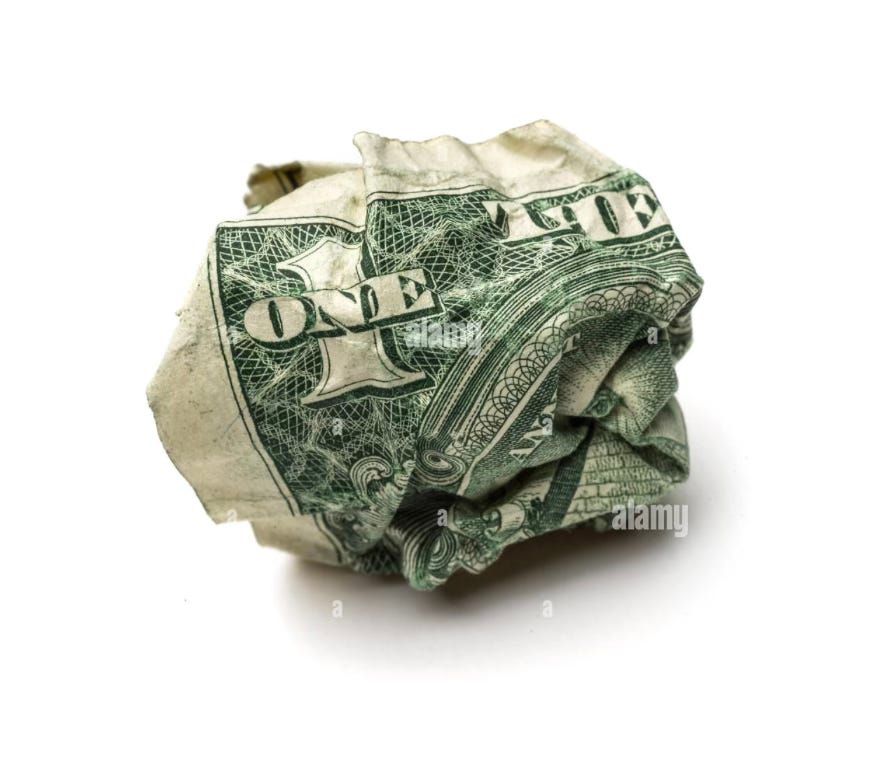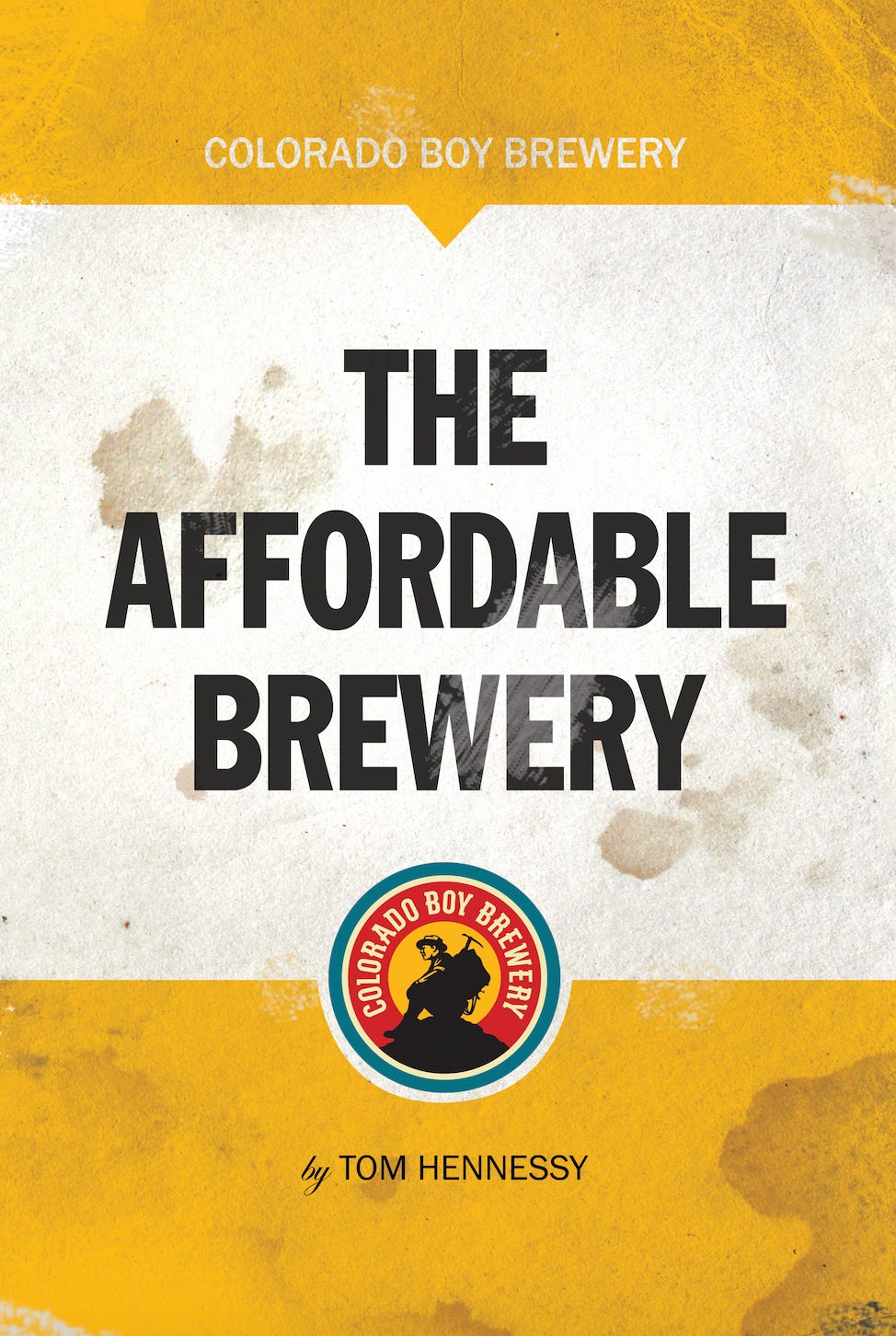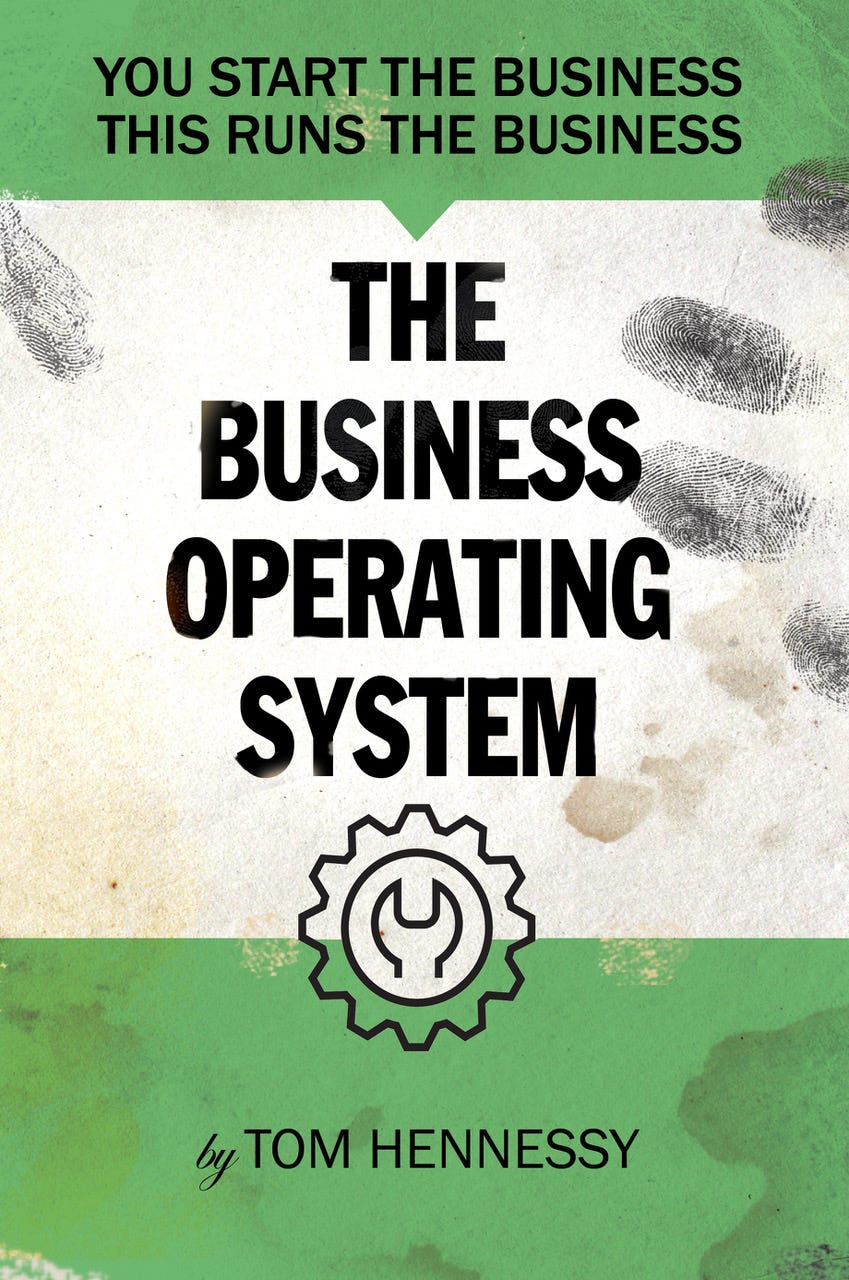There’s no getting around it: you can’t just borrow your way to your own brewery. You will need to bring some cash to the table.
In fact, the IRS requires you to put some of your own money into your business. That makes sense to me, as you need to feel the pain.
But the good news is to make the IRS happy, it doesn’t require all that much. My last brewery I built, I set up a corporation and funded it with $4,000. There were only two shareholders, my wife and myself, so each one put in $2,000. That’s what my accountant thought was reasonable.
Now that isn’t all the money we put into it. Not by a long shot. But the rest of the money we invested was as a loan to the company that would be paid back with interest.
However, you still need to have money, and I suggest the more the better. You may be living paycheck to paycheck currently and it is just a dream to open your own brewery. This is not a stumbling block. The truth is, even if you are living with just enough, there is still a path to creating more free cash.
The first thing however is to come to grips with your own desire. If owning your own brewery is your biggest desire, write that down on a note card and put it on your fridge. You will be referring back to it throughout this process.
This is important. Unless you have a lot of money you consider play money, as in, “I could spare $100,000 out of my brokerage account and see if a brewery would work” then, making this brewery a reality has to be your number one goal and you will not be deterred. I say this because I am going to suggest you make some sacrifices.
Currently there are so many financial leeches stuck to each and everyone of us, that I simply didn’t have when we built our first restaurant at the end of 1985.
For example, there were no cell phones. That alone could cost you $1,000 per year. Back then you rented your phone from the phone company for about $7 per month and paid an additional $10 for the service. However, a long-distance call was prohibitively expensive.
We had no internet to pay for, we had free yellow pages to look up things local, and any other information you needed to go to the library.
Most importantly we had no subscriptions, unless it was a subscription to a magazine or a newspaper. And that’s a good place to start in gathering up your financial resources.
However, we not only want to gather up as much cash as possible for our brewery. We also want to cut down our debt as well. Because once we start the business, we want to operate as lean as we can. We want to worry about how the brewery is going to pay its bills, not how we are going to pay our personal bills as well. By operating lean personally, you are setting yourself up for wealth building. That means the expensive cars, homes and vacations–if you want them–come later. Now just keep thinking, lean.
GET RID OF UNNECESSARY SUBSCRIPTIONS
If you are like me, you might be unaware of how many tiny subscriptions you have signed up for or how much it is costing you per month. It’s easy to find out, however. You simply need to print up your bank statements and your credit card statements. Most of your subscriptions are monthly, so they are easy to spot with one months-worth of statements. However, there are others that are paid once per year. The only way to find those is to take the time and look through a years-worth of statements. And if you don’t feel like doing that, then simply catch the monthly ones and eliminate those if you can, and then when you get hit with another big yearly subscription, you can cancel that. You might as well get used to reading your statements, because as a brewery owner, you are going to become intimate with the books!
Your cell phone also has in its settings subscriptions to apps. You can choose to quit them or simply take yourself off auto renewal. It’s those damn auto renewals that get you every time! You don’t realize it when you sign up for something that it automatically puts you on auto renewal.
JUNK
Have you ever thought how funny it is that people fill their garages with the accumulated detritus of years, while their very expensive cars sit in the driveway? Think about it. Your garage protects your old golf clubs, bikes with flat tires, boxes of clothes, and old toys from the elements, while your $20,000 to $30,000 car sits outside, apparently less valuable than those items. Right?
What’s even worse are storage units. You can easily spend $100 per month renting one of these. It’s like paying for a condo for junk that you go and visit every now and then. Do you even know what’s in there?
I remember as we were building our first business and we rented a storage unit. Years went by and if I remember correctly, there was an old mattress, boxes of pictures and menus we longer used, my partner's cap and gown from graduation, and various broken restaurant equipment. As far as I know, my old partners still have the unit, but maybe not. Last time I checked, it had been rented for over $100 per month for well over 20 years. Insane.
VEHICLES
Speaking of insane, what we spend on or transportation takes the cake. I am the worst, too. I have been a car guy since I built my own Soap Box car when I was 12. I’m still always buying cars but thankfully we are down to only 2, after I sold my hobby 1967 Fiat 500.
I got smart, however, when I made the leap to open our first restaurant.
At the time, I had a Chevy Camero that I was making car payments on, and a 1950 Plymouth for fun. To simplify and free up money, I sold the Plymouth and had to find someone to take over payments on the Camero as with buying a new car, it depreciates so fast as soon as you leave the dealership, you have no equity to sell.
I knew I needed a pickup truck going forward to haul things as we put together our first restaurant. What I found, about a block away from where we lived was a 1967 robins’ egg blue Datsun pickup. We called it Tug because 45 mph was its happy place, though I could push it to 55. The cost was $1,300 cash. I loved that little truck.
With one cheap vehicle I only needed liability insurance for it, compared to the Camero that was financed and needed full coverage.
My advice is to look at your vehicle inventory as well as the associated yearly costs. It’s scary. The newer and fancier the transportation, it seems the associated costs go up exponentially. Depending on your state, taxes and registration is a chunk. Bad gas mileage is a huge deal too, if you look at it from yearly costs.
Then there is the cost to insure each vehicle. If you have it financed, most likely you have full coverage. Of course, there is also the wear and tear, tune-ups, tires, etc.
The first order of business is to get rid of any car payments. Sell those if you can. Then buy a decent used car and get liability insurance only. For something really radical, buy a used electric vehicle (EV). If you are in a situation where 95% of your daily driving is within 50 miles, you can buy a used one that has a range of 100 miles for less than $5,000. You won’t need oil changes, timing belts, and even most likely, brake work as these cars use regenerative braking, so the pads hardly get used.
Even at that price they have great air conditioners, heated seats and great sound systems. Here’s the kicker though, by simply plugging it in to a simple 110v socket overnight (the cars come with chargers), the math works out to an equivalent of about .70 per gallon by looking at the cost of kilowatt needed per range, compared to the price of gas per range.
CREDIT CARDS
While you are getting rid of subscriptions, junk, and excess vehicles, you are freeing up a lot of cash. The next big-ticket item will be to look at your high interest debt. Credit cards are typically your largest interest expenses, and also the easiest in most cases to get rid of.
Start by making a list your credit cards. You may be like me and only have one, and maybe a backup in case someone steals or hacks the card you use.
The first one on your list would be the one with the smallest balance. Do everything you can to pay that off. Whatever you were paying monthly on it, after it’s paid off, roll that payment over to your next biggest credit card bill, and start paying that off. It’s like a snowball rolling down the hill, each time you pay off a credit card there is a larger amount of cash available to pay off the next biggest bill.
This doesn’t have to apply just to credit cards either. It could be a car payment, or something you bought on layaway. Remember our goal is to approach the new business with as little personal debt as possible. All those payments to credit card companies, car loans, or small bank loans become a distraction, when you need to be focusing on running a business and paying those bills.
It has always been true that cash is king. No debt and some savings is better than any anti depression pill you could take. Less stress too. But getting your financial house in order is really the starting block to building your own brewery. Once you do these sacrifices, truly, it becomes easier and well-worth the pain of it.
Let me know your comments and how you’ve approached this. What money saving ideas have you come up with?








Good points. As a fellow car guy, I see my dream brewery as similar to buying another project car. Sink a ton of money into something you have this romantic dream of owning, even though it's probably a terrible financial decision. I could leave the money in a 401k, but then what will I have to wrench on Friday night at 9pm?